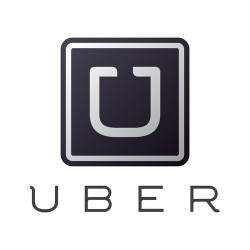Top Class Actions’s website and social media posts use affiliate links. If you make a purchase using such links, we may receive a commission, but it will not result in any additional charges to you. Please review our Affiliate Link Disclosure for more information.

The employees in the wage and hour class action lawsuit argue that if they were employees, they would be entitled to related benefits and protections under federal and California labor laws, which they don’t get as independent contractors.
Currently, Uber is trying to prevent certification of one of the largest California employee misclassification class action lawsuits. Unlike a traditional taxi company, Uber drivers are classified by the company as independent contractors and not employees.
Over 160,000 Uber drivers are claiming they have been misclassified as independent contractors and are seeking mileage and tip reimbursements.
On Aug. 6, U.S. District Judge Edward Chen heard arguments about whether O’Connor et al vs. Uber Technologies deserves status as a wage and hour class action lawsuit representing current and past Uber drivers in California, or whether it should be confined to the three drivers who brought the lawsuit.
Judge Chen’s ruling is not expected for several weeks.
Implications of Uber Driver Class Certification
The outcome of the Uber wage and hour class action lawsuit is being watched closely by other popular on-demand companies because workers deemed “employees” have mandates on wages and benefits that independent contractors do not.
Companies like Uber, in which people act as independent contractors and use their own assets to provide services to the public afford workers flexibility that a traditional employee doesn’t have.
However, if Uber’s drivers are granted class action status and are ultimately deemed employees, Uber would be faced with the challenge of completely overhauling its app-based business model as the company would have to pay state and federal taxes for unemployment, disability, Social Security and Medicare.
It has been suggested from calculations that a forced nationwide reclassification of Uber drivers as employees would cost Uber nearly $1 billion per year to treat all of its U.S. drivers as employees.
The Uber California wage and hour class action lawsuit is currently the furthest along in a recent slew of employee misclassification lawsuits against such companies, and potentially involves the largest numbers of plaintiffs.
Judge Chen’s ruling may serve as a legal precedent for companies such as Lyft and other businesses that classify workers as independent contractors.
Misclassification of Independent Contractors
The same day that Uber argued against class certification, Judge Chen presided over a hearing on the recent $228 million settlement by FedEx in the case of 2,000 delivery drivers who already won a California workers rights class action lawsuit claiming that they are employees, not independent contractors. That hearing revolved around procedural issues of how the settlement would be allocated.
An attorney representing Uber drivers argued that this FedEx employee misclassification case sets a precedent in the Uber class action.
In March, Judge Chen ruled that the Uber drivers’ class action has enough merit to proceed to a jury trial, as both sides have reasonable arguments.
U.S. District Judge Vince Chhabria issued a similar ruling in a case brought by Lyft drivers. Class action lawsuit in the Lyft case will be argued in court in December.
In June, the California labor commissioner’s office found that Uber driver Barbara B. was an employee and entitled to reimbursement of over $4,000 in expenses.
The Uber Driver Wage and Hour Class Action Lawsuit is O’Connor et al. v. Uber Technologies Inc. et al., Case No. 3:13-cv-03826 in the U.S. District Court for Northern District of California.
Join a Free California Overtime, Wage & Hour Class Action Lawsuit Investigation
If you were forced to work off the clock or without overtime pay in California within the past 2 to 3 years, you have rights – and you don’t have to take on the company alone.
ATTORNEY ADVERTISING
Top Class Actions is a Proud Member of the American Bar Association
LEGAL INFORMATION IS NOT LEGAL ADVICE
Top Class Actions Legal Statement
©2008 – 2024 Top Class Actions® LLC
Various Trademarks held by their respective owners
This website is not intended for viewing or usage by European Union citizens.














